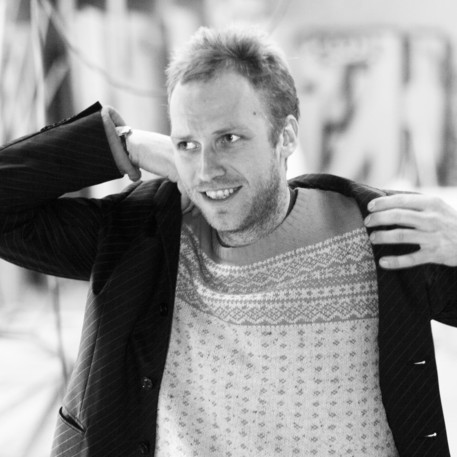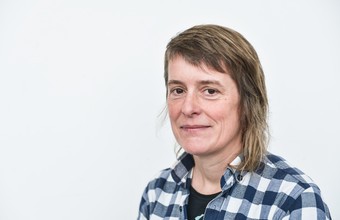How Asking Questions Became my Work
I believe Design School Kolding came onto my radar when I was about 15 years old. It has stayed there ever since and has grown to become the focal point of my personal and professional development. To be sure, this was not written in the cards.
I applied to the Department of Apparel Design back in 1988 for two reasons. I had friends who went to the school, and it was Kolding School of Arts and Crafts that I was interested in. Oh joy, I was accepted! From a great freshman year, under Ulla Rasmussen, my time as a student became a bumpy ride, as I started to question my own place in the field. But I think this experience of uncertainty and displacement, exacerbated by having five different department heads in five years, had a great impact on my further path and motivation for shaping the design education. It has basically installed a deep interest in how bumps, i.e. challenges and difficulties, can be reversed and used in a constructive way, be it within a student’s development or within an educational framing. The core question for me has been how to ‘see’ each individual student as a whole person with something particular to offer, while at the same time developing a coherent education that embraces diversity. A key point for me has been to articulate and operationalise different approaches and methods for the students within the fashion course in order to support each student’s own practice development and the understanding that there is no such thing as a fixed formula.
I have had several roles at Design School Kolding. Initially I was a guest teacher. Then I became a teacher in construction and later Head of the Fashion Department for five years. This is when the academisation of the design educations kicked in, which opened up a whole new line of questions: Where was the literature that explicated what fashion designers do and the competencies and knowledge it takes, and how can theory become a tool for fashion students in their design process – in short, the question of how to link theory and practice in a meaningful way.
By teaching, developing education, and conducting research at Design School Kolding I have been able to pose these questions and continuously try to explore them. This is a privilege. Still, I have contemplated why Design School Kolding keeps fascinating me, and I have found that it is because the place in itself is a design process – an ever evolving organic process of change, fostered by shifting external and internal constraints. If you, as I am, are a sucker for that sweet spot between input and output where everything is moving, then this is an amazing place to be, even if you never reach any tangible outcome. But looking beyond myself there is also much to be done. The whole industry is changing due to the current sustainable paradigm shift, and in this process new important questions emerge on how we, as designers, can take back the agenda from serving a fast fashion system that infuses stress and demotivation and begin to openly discuss and define our roles within – and contributions to – society. For my part, I believe my contribution so far has been: to support a diverse approach to what fashion design is and how it is carried out; to make theory relevant to fashion designers; and to open up research as a career path for students by being among the first – if not the first – person in Denmark with a fashion design educational background to obtain the PhD degree.




